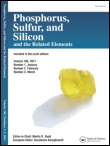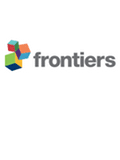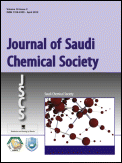
REVUE ROUMAINE DE CHIMIE
Scope & Guideline
Catalyzing Innovation in the Realm of Chemistry
Introduction
Aims and Scopes
- Materials Chemistry:
Research on the synthesis, characterization, and application of new materials, including nanomaterials and composites, is a significant focus. This includes studies on catalytic properties, photonic applications, and structural investigations of various compounds. - Synthetic and Analytical Chemistry:
The journal publishes studies that involve the development of new synthetic methodologies, including green chemistry approaches, as well as advancements in analytical techniques for chemical analysis. - Medicinal and Pharmaceutical Chemistry:
A considerable amount of research is dedicated to the synthesis and evaluation of bioactive compounds, including studies on their pharmacological properties and interactions with biological systems. - Environmental Chemistry:
Papers addressing the environmental impact of chemical substances, including studies on pollution remediation and the development of green chemistry practices, are a core aspect of the journal's mission. - Computational Chemistry:
The journal also includes studies that utilize computational methods to predict chemical behavior, molecular interactions, and the properties of new compounds, contributing to a deeper understanding of chemical systems.
Trending and Emerging
- Nanotechnology and Nanomaterials:
There is a marked increase in the publication of research related to nanomaterials, particularly their synthesis, characterization, and application in various fields, including medicine, catalysis, and environmental remediation. - Green Chemistry:
A significant trend towards sustainable practices is evident, with many papers focusing on eco-friendly synthesis methods, waste reduction, and the development of biodegradable materials, reflecting a broader societal push towards sustainability. - Biochemistry and Pharmacology:
Research at the intersection of chemistry and biology is on the rise, with an increasing number of studies exploring the pharmacological properties of new compounds and their potential therapeutic applications. This trend highlights the importance of interdisciplinary approaches in addressing health-related challenges. - Computational Modeling:
The use of computational methods to model chemical processes and predict the behavior of new materials is gaining traction, as evidenced by a growing number of studies employing advanced computational techniques in their research. - Environmental and Analytical Chemistry:
There is an emerging focus on environmental chemistry, particularly studies that investigate the detection and remediation of pollutants, as well as the development of analytical techniques for environmental monitoring.
Declining or Waning
- Traditional Organic Synthesis:
There has been a noticeable decline in papers focused solely on traditional organic synthesis methods without the integration of modern techniques or applications, reflecting a trend towards more innovative and interdisciplinary approaches. - Inorganic Chemistry:
Research specifically centered on classical inorganic chemistry topics, such as coordination compounds without biological or environmental relevance, appears to be decreasing in favor of studies that emphasize applications in materials science or catalysis. - Basic Physical Chemistry:
The focus on foundational physical chemistry topics, such as fundamental thermodynamic studies or classical kinetics, seems to be waning as the journal increasingly emphasizes applied research and interdisciplinary studies.
Similar Journals

ACTA CHIMICA SLOVENICA
Exploring New Frontiers in Chemical ResearchACTA CHIMICA SLOVENICA is a distinguished peer-reviewed journal dedicated to advancing the field of chemistry, published by the SLOVENSKO KEMIJSKO DRUSTVO. With an ISSN of 1318-0207 and E-ISSN 1580-3155, this journal has been an essential resource for researchers and professionals since its inception in 1996. Recognized for its commitment to open access since 1998, it fosters global collaboration by making research widely available. Based in Slovenia, the journal operates with a focus on various domains within chemistry, achieving a respectable Q3 ranking in 2023 within the miscellaneous chemistry category on Scopus, showcasing its impact and relevance. This journal serves as a vital platform for innovative research, reviews, and discoveries, aiming to enhance knowledge and ignite curiosity in a diverse readership, including students and emerging scholars in the field.

PHOSPHORUS SULFUR AND SILICON AND THE RELATED ELEMENTS
Charting New Frontiers in Elemental ChemistryPHOSPHORUS SULFUR AND SILICON AND THE RELATED ELEMENTS, published by Taylor & Francis Ltd, is a distinguished journal dedicated to advancing knowledge in the fields of Biochemistry, Inorganic Chemistry, and Organic Chemistry. Established in 1989, the journal has carved a niche in the scientific community by offering a platform for the publication of innovative research that explores the chemistry and applications of phosphorus, sulfur, silicon, and related elements. With an ISSN of 1042-6507 and an E-ISSN of 1563-5325, this journal provides access to valuable insights, albeit without open access options. Despite being positioned in the fourth quartile of its categories (Q4), it remains an essential resource for researchers, professionals, and students seeking to expand their understanding of these pivotal elements and their interactions. With a publishing horizon extending to 2024, the journal invites contributions aimed at pushing the boundaries of chemistry and fostering interdisciplinary dialogue.

Revista Virtual de Quimica
Fostering Collaboration in Chemical ResearchRevista Virtual de Quimica, published by the SOC BRASILEIRA QUIMICA, is a dynamic online journal based in Brazil, dedicated to promoting innovative research in the field of chemistry and related disciplines. Established in 2011, the journal has made significant strides in contributing to the academic landscape, receiving an impact factor that highlights its relevance, although it currently holds a Q4 quartile ranking in the miscellaneous category of Chemistry and Mathematics as of 2023. The journal is committed to open access, ensuring that scholarly articles are readily available to researchers, professionals, and students worldwide. Its focus encompasses diverse areas within general chemistry, aiming to foster knowledge sharing and collaboration among the scientific community. By providing a platform for high-quality research publications, Revista Virtual de Quimica stands as an essential resource for advancing chemical sciences and encouraging interdisciplinary studies.

EUROPEAN JOURNAL OF ORGANIC CHEMISTRY
Empowering Discovery in Organic ScienceThe EUROPEAN JOURNAL OF ORGANIC CHEMISTRY (ISSN: 1434-193X; E-ISSN: 1099-0690), published by WILEY-V C H VERLAG GMBH in Germany, stands as a crucial platform for disseminating innovative research in the fields of organic, physical, and theoretical chemistry. With its inception dating back to 1998 and converging expertise until 2024, this esteemed journal has achieved a notable reputation, earning a Q2 rank in both Organic Chemistry and Physical and Theoretical Chemistry categories as of 2023, indicating its vital contribution to the academic community. Researchers and professionals will benefit from its rigorous peer-reviewed articles, which foster advancement in chemical sciences, while students can leverage its wealth of knowledge to enhance their learning. Although currently not an open-access journal, the content produced is invaluable for those looking to stay at the forefront of chemical research.

Chemija
Exploring the Frontiers of Chemical Science.Chemija is a prominent journal in the field of chemistry, published by LIETUVOS MOKSLU AKAD LEIDYKLA in Lithuania. With a focus on diverse topics within the realm of chemistry, this journal aims to disseminate original research articles, reviews, and discussions that advance the understanding and application of chemical science. Although it currently holds a Q4 ranking in the miscellaneous category of chemistry, Chemija is committed to elevating its impact through the publication of high-quality research, making significant contributions to the discipline. The journal operates under a non-open access model, ensuring that articles undergo rigorous peer review to uphold academic standards. Researchers, professionals, and students are encouraged to explore the wealth of knowledge within its pages as it endeavors to bridge gaps across various subfields of chemistry from 2008 to 2024. With a dedicated readership and a growing database of insightful publications, Chemija serves as an essential resource in the ever-evolving landscape of chemical research.

Frontiers in Chemistry
Innovating Chemistry Through Open Access Research.Frontiers in Chemistry is an esteemed and innovative Open Access journal published by FRONTIERS MEDIA SA, based in Lausanne, Switzerland. Since its inception in 2013, the journal has established itself as a leading platform for the dissemination of high-quality research across a broad spectrum of chemistry disciplines, achieving a notable Q1 classification in the miscellaneous chemistry category as of 2023. With an impressive Scopus rank, placing it at 72nd out of 408 in General Chemistry and falling within the 82nd percentile, Frontiers in Chemistry is committed to publishing significant findings that contribute to the advancement of the field. The journal's Open Access model ensures that research is freely accessible to all, fostering a greater exchange of knowledge and collaboration among researchers, professionals, and students globally. It covers a range of topics, from organic and inorganic chemistry to materials science and biochemistry, making it an essential resource for anyone seeking to stay at the forefront of chemical research.

Vietnam Journal of Chemistry
Empowering Chemists with Valuable InsightsVietnam Journal of Chemistry, published by WILEY, is a prominent academic journal that serves as a platform for the dissemination of innovative research in the field of chemistry. With its ISSN 0866-7144 and E-ISSN 2572-8288, this journal has made a significant impact on the global scientific community, evidenced by its 2023 Scopus ranking as #274 in the General Chemistry category and a commendable percentile of 32nd. The journal, categorized in the Q3 quartile for miscellaneous chemistry subjects, aims to foster communication among chemists from Vietnam and around the world, encouraging collaboration and the exchange of cutting-edge knowledge. While it currently does not offer Open Access options, the Vietnam Journal of Chemistry is committed to contributing valuable insights from its coverage years spanning from 2018 to 2024, making it a worthy resource for researchers, professionals, and students dedicated to advancing the field of chemistry. Based in the United Kingdom, it stands as a testament to the vibrant research endeavors emerging from Vietnam and beyond.

Moroccan Journal of Chemistry
Empowering Chemists with Cutting-Edge Discoveries.Moroccan Journal of Chemistry, published by the University Mohammed Premier Oujda, serves as a pivotal platform for researchers and professionals in the field of chemistry, particularly focusing on diverse and emerging areas within the discipline. Established in 2018, this open-access journal facilitates widespread dissemination of scholarly articles, ensuring that cutting-edge research reaches a global audience. With an ISSN of 2351-812X and categorized in the Q3 quartile for miscellaneous chemistry in 2023, the journal maintains rigorous peer-review standards while fostering an inclusive environment for scientific dialogue. Located in Morocco, it aims to bridge local and international research communities, contributing to the advancement of knowledge in chemistry. As it continues to grow, the Moroccan Journal of Chemistry remains an essential resource for students, educators, and professionals eager to stay abreast of the latest developments in the field.

Journal of Saudi Chemical Society
Catalyzing Progress in the World of Chemistry.The Journal of Saudi Chemical Society, published by ELSEVIER, stands as a premier platform for advancing knowledge in the field of chemistry. Since its inception in 2009, this Open Access journal has garnered significant attention, securing a prestigious Q1 ranking in the Chemistry (miscellaneous) category for 2023, reflecting its position among the top journals in the discipline. With an impressive Scopus ranking of #66 out of 408 in General Chemistry, this journal boasts a commendable 83rd percentile, underscoring its impact and relevance in the global research community. The journal aims to disseminate high-quality research articles, reviews, and case studies, fostering innovation and collaboration among chemists and allied professionals. By enabling widespread access to cutting-edge research, the Journal of Saudi Chemical Society plays a crucial role in supporting the educational and professional development of students, researchers, and practitioners alike, making it an essential resource for anyone invested in the dynamic field of chemistry.

Nature Reviews Chemistry
Connecting Scholars with the Pulse of Chemical InnovationNature Reviews Chemistry is a premier journal published by NATURE PORTFOLIO, dedicated to advancing scholarly discourse in the broad field of chemistry. With an impressive impact factor and a ranking in the 99th percentile across its categories—ranked #2 in General Chemical Engineering and #4 in General Chemistry according to Scopus—this journal is recognized for its high-quality, peer-reviewed articles that synthesize and analyze the latest advancements in chemical research. Operating under a convergence framework from 2017 to 2024, Nature Reviews Chemistry aims to provide comprehensive insights and critical examinations of contemporary chemical practices, thereby reinforcing its status as a vital resource for researchers, professionals, and students alike. Although it is not an open-access journal, the breadth and authority of its content make it essential for those looking to stay at the forefront of chemical sciences.